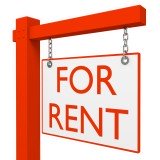Important Steps for Becoming a Landlord
Becoming a landlord can be highly rewarding if you take the right steps. Learn how to become a landlord and manage your property like an old pro with our beginner's guide for first time landlords.
RELATED: How to Become a Landlord - Step 1 to 3
4. Maintaining Your Property and Making Repairs
Becoming a landlord means having to deal with property maintenance and repairs to keep your rental property in habitable conditions.
It's best to maintain your property well because major repairs can quickly burn a hole in your pockets. Fixing damages while they are still superficial is the most effective to lower repair costs.
When hiring contractors to carry out repairs on your rental property, there are a few things first landlords have to learn. For recommendations on reliable contractors, it never hurts to ask fellow landlords and your local landlord associations.
Almost all countries issue contractor licenses but unlicensed contractors are allowed to carry out certain repairs works too. If you're still learning how to become a landlord, it's best to stick to licensed contractors so at least you know that they have passed a basic level of professional training.
For the same repair work, It's a good idea to obtain price quotes from at least 3 contractors so that you can compare and bargain. Make sure their prices quotes contain exact details of the repair works so you know what you'll be paying for - Click here to learn what to look for when hiring a contractor.
5. Accounting for Rental Income and Expenses
Proper accounting for your rental property is essential. It's the only way to know if your rental property is raking in profits or bleeding losses.
For the income side, you need to add up the rents collected and all tax benefits that you get to enjoy as a rental property owner.
The rental expenses can be bit more tricky for a first time landlord as there are more expenses to account for, including mortgage payments, home insurance and property taxes. If you hired any third party help such as real estate agents or lawyers, you need to include their fees too.
For more details on how to calculate your rental cash flow, Click here for our step by step guide to rental property accounting.
Depending on your rental agreement terms, you may also have to factor in maintenance costs such as repairs, garbage collection, gardening, plumbing (if you're paying for them).
Many first time landlords forget to include vacancy costs when calculating their expenses. Vacancy costs are the loss of rent income whenever your rental property is vacant and earning zero rent.
To calculate your vacancy cost, estimate how long your rental property is likely to be vacant in a year. This usually varies from 2 weeks to 3 months depending on the demand for rental property in your area. To obtain your vacancy cost, add the mortgage payment for this duration to the cost of finding a new tenant.
6. Resolving Tenant Disputes and Evicting Them
Whether you're becoming a landlord for the first time or have years of experience under your belt, disputes with tenants is something you can't avoid.
Knowing how to handle nasty tenants is a critical part of becoming a landlord... if you want to preserve your profits and sanity.
Problems can range from simple issues that can be settled with a quick phone call to major conflicts that has to be resolved with a court order or eviction - Click here for our complete guide on how to deal with difficult tenants.
Evicting tenants is a long and costly process that is only recommended as a last resort. However if you have no other choice and eviction is the only way out, Click here to learn how to evict a tenant legally.
With a bit of homework and common sense, becoming a landlord can be a rewarding journey. As always, we'll be here help you to iron out the bumps.
- How to Become a Landlord in 6 Simple Steps
- 7 Common Landlord Mistakes to Avoid
- Where and How to Find Tenants Online
- Free Ways to Advertise Rental Property Offline
- Real Estate Jargon Dictionary - A to Z
Visitor Comments:
-
Becoming a Landlord? Track Your Expenses Well 




My biggest regret was that I didn't bother keeping records of my property expenses when I was becoming a landlord for the first time. I only realized my …



